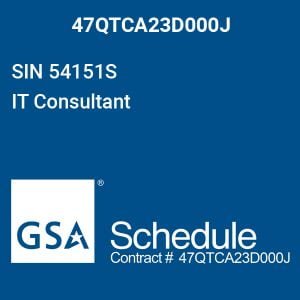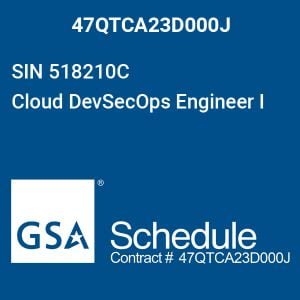Data is a valuable asset for many companies and organizations, and it is vital to keep your data safe. You need a secure cloud storage solution that can handle the amount of data you are storing and protect this information from bad actors. The best way to protect your data while maintaining easy access is through Amazon EKS or Amazon Elastic Container Service (ECS).
These two services offer different pros and cons when compared to one another. This article will help clear up some common questions about these two services so you know which one is right for your particular needs.
It’s important to remember that data is any company’s most valuable asset. It can improve the customer experience, make better business decisions and improve products and services. It can also be used to improve efficiency within the organization by optimizing resources and processes.
What are EKS and ECS?
In the world of data science, there are two types of clouds: Amazon Elastic Compute Cloud (ECS) and Amazon Elastic Kubernetes Service (EKS). Here’s what they do.
1. Amazon Elastic Compute Cloud (ECS)
ECS is a sort of hybrid between virtual machines and containers. It allows you to run your applications on virtual devices that can be easily scaled or moved around. You can use ECS with other AWS services like Lambda and DynamoDB, which means that it can be very powerful if you use other AWS services. It also allows you to use Docker containers as well.
2. Amazon Elastic Kubernetes Service (EKS)
EKS is a managed service that makes it easy to deploy, manage, and scale containerized applications on any scale on AWS across multiple regions. EKS is built on top of Kubernetes, an open-source system for automating deployment, scaling, and managing containerized applications at scale.
Unlock the future of intelligent applications with our cutting-edge Generative AI integration services!
Key Differences Between ECS & EKS:
The primary difference between ECS and EKS is that while they provide container services, they do so in slightly different ways.
ECS (Elastic Container Service) is an Amazon Web Services (AWS) managed service. This means you don’t have to manage the underlying infrastructure or software; instead, AWS takes care of everything for you.
Since AWS manages it instead of any other team, this means there are certain benefits:
- Scalability: It’s easier for AWS to scale up its infrastructure than for a small business or startup. This means that if your app becomes popular, your traffic will be able to handle more users without any issues.
- Flexibility: With ECS, you can deploy containers from any Docker registry—including those hosted on-premises rather than cloud-based ones like Amazon’s own Elastic Container Registry (ECR), which currently only supports Docker Hub as an offsite repository provider.
3. Ease of Deployment:
ECS has a web console, CLI, SDK, REST API, and event stream. With ECS, you can control your cluster through an intuitive web console. You can also manage your ECS clusters with the CloudWatch Events and CloudWatch Logs features available in AWS.
This gives you more visibility into what’s happening inside your cluster. The Amazon EKS CLI allows you to perform these operations from the command line interface (CLI).
Suppose you use Kubernetes on AWS or Google Kubernetes Engine (GKE). In that case, using APIGEE Edge is a great way to extend your existing Kubernetes deployment by adding analytics, security scanning, and monitoring capabilities without changing any infrastructure code or scripts.
4. Pricing
In terms of pricing, ECS is cheaper than EKS. This is because you only pay for the number of containers you run and not for a cluster. However, this can make it more expensive when running large sets as you may end up paying for many instances even though they might be idle most of the time.
5. Compatibility
The biggest difference between EKS and ECS is that Kubernetes as a service (KaaS) is open-source, whereas ECS is an AWS-proprietary technology.
While Kubernetes may be used with any cloud provider and on-premises, ECS and EKS are only available through AWS. Utilizing a managed Kubernetes service like EKS, you are still making a technical and professional investment in a platform independent of the cloud. However, this is not the case with ECS since it is only made available for the AWS cloud.
6. Networking
Another benefit of ECS is that it’s easy to set up and configure. Unlike other managed services, ECS does not require any manual configuration. Once you have an account with AWS, you can simply create a cluster by selecting the desired number of instances and starting them up.
This makes it easy for developers who may want to be able to use their preferred container registry or registry service provider (like Docker Hub) but don’t want to worry about configuring anything themselves beyond creating a cluster in ECS.
EKS is a managed service which means that everything from scaling your cluster up or down as your traffic grows or shrinks—to providing highly available infrastructure across availability zones—is handled automatically by AWS for you.
This makes deploying applications on top of Kubernetes much simpler than manually without additional tools like Terraform or CloudFormation.
7. Security
This is a great question. The difference between ECS and EKS lies in your control over your cluster.
EKS can be considered SaaS (Software-as-a-Service), while EC2 can be thought of as IaaS (Infrastructure-as-a-Service). This means that AWS manages all aspects of your cluster for you, including security patches, whereas if you run an EC2 instance on your hardware, it’s up to you to keep it up to date with security patches.
If an attacker could break into one of these clusters and steal data from one of its nodes, there would be no way for them to get their hands on all the data stored there because it would be spread out across multiple servers.
On top of that, even though EC2 instances aren’t necessarily more secure than ECS clusters, there are ways for users who want more control over their clusters’ security settings to make sure they’re protected. You can:
- set up two-factor authentication or VPNs;
- enable encryption keys;
- set up additional firewalls between yourself and all other parties who might want access through any part of the network;
- use private networking so only certain IP addresses can access certain services/resources within each region.
use private networking so only certain IP addresses can access certain services/resources within each region.
9 Things You Need To Know About Amazon’s ECS And EKS
Amazon puts a lot of faith in its container service, ECS. But what exactly is ECS? And how does it differ from other cloud-based container services like Kubernetes and Docker?
This section will discuss what ECS is and how it compares to other cloud-based container solutions. We’ll also explore some key benefits of using Amazon’s EKS instead of another orchestration tool like Kubernetes or Docker Swarm.
1. ECS Is A Way To Run Your Containers On AWS
What is ECS? ECS (Elastic Container Service) is a fully managed service that makes it easy to run, scale and operate Docker containers on AWS. It provides container management services, including scheduling multiple hosts and auto-scaling based on load.
You can think of ECS as a way to run your containers on AWS. It takes care of all the heavy lifting involved in taking care of your containers so that you can focus on building great applications or services.
2. ECS Is FaaS, Not CaaS
The first thing to know about Amazon’s ECS and EKS is that they are FaaS. And no, I don’t mean “fabulous” or “fabulous.” I’m talking about FaaS, which stands for Function as a Service.
It’s important to understand the definition of FaaS because it’s one of the major differences between AWS’ solution and some other cloud providers who offer CaaS (Container as a Service).
To be fair, these two acronyms sound very similar at first glance. In fact, there is a crossover between them since both provide containers on demand. But it’s their underlying concepts that differ significantly:
- C – runs your containers on your hardware
- A – runs your containers on AWS infrastructure
- S – manages those containers for you
3. ECS Is The Only True Choice For Running Containers On AWS
- ECS is the only container service available on AWS; no other container services are supported.
- AWS does not recommend other container services.
- AWS does not develop other container services.
As you can see, there’s no reason to use anything else but ECS when running containers on Amazon Web Services.
4. ECS Lets You Use Multiple Container Orchestrators
You can use any container orchestrator you want.
EKS is a managed service, so Amazon takes care of all the work for you. You only have to choose which container orchestrator to use: Kubernetes or Docker Swarm. If you don’t want to install and maintain your cluster management system, ECS also has a third option called Fargate that lets Amazon manage all your containers for free.
5. Amazon’s EKS Amazingly Lacks Integration With Other Key Services
The fact that Amazon’s EKS doesn’t integrate with other services is a big deal. With Kubernetes, you can use it to run containers on other AWS services like S3 and Lambda if you want to. You can also configure your clusters to pull from an existing Docker registry or build images on-the-fly using the K8s builder image (it’s open source).
With Amazon’s EKS, however, this isn’t possible—you have to create a cluster for each service individually. If you want to use multiple types of clusters (e.g., one for running web applications and another for running batch jobs), then this isn’t ideal either since there’s no way to share resources between them unless they’re configured in different VPCs or subnets within the same region.
6. Amazon’s EKS Services Are Still In Preview Mode
While Amazon has released the preview version of its EKS service, it is not ready for production use. The company recommends that you only use its services in non-production environments until they are fully released. You can learn more about this in our previous blog post about Amazon’s new EKS service.
7. You Can Use EC2 Spot Instances To Save Money When You Use Amazon’s EKS
If you’re using Amazon’s EKS and want to save money, you can use EC2 spot instances. Spot instances are cheaper than regular EC2 instances, so if your workload can tolerate interruptions (e.g., an online movie streaming service), then spot instances are ideal. But if your workload is mission-critical (e.g., financial transaction processing), it’s better not to use spot instances because your workload may be interrupted by AWS at any time.
8. You Can’t Migrate Your ECS Service To Kubernetes With Zero Downtime
If you’re running an ECS service on AWS, one thing to note is that it’s impossible to migrate your service over to Kubernetes without downtime. To do this, you’ll have to use Amazon’s EKS (Amazon Container Service). This managed version of Kubernetes allows developers to run their clusters in an isolated environment.
It may seem like a lot of steps are involved here, and it seems like too much work for such a simple task, but hopefully, if you follow this guide and go through all of these steps, then migrating from ECS will be easier than expected.
9. Amazon’s Containers Are Ideal For Self-Contained App Deployments
Amazon’s ECS and EKS are great choices for specific types of applications. If you’re deploying a complex microservice architecture or your workloads require high availability and visibility into resource utilization, you can use Amazon’s containers to build an environment that meets those needs. However, they’re not a perfect solution in every case; there are other options out there that might be more appropriate for your app (such as Kubernetes).
If you’re building a monolithic application where all of its services run on the same machine (or virtual machine), it may make sense to start with something like Docker Swarm or Mesos instead. In this case, using containers may make things more complicated than necessary because each service would need its container image and registry—and then there’d be additional overhead involved in managing those images within each container instance.
Small Disadvantaged Business
Small Disadvantaged Business (SDB) provides access to specialized skills and capabilities contributing to improved competitiveness and efficiency.
Amazon’s Containers are a Great Choice for Specific Kinds of Applications.
Amazon’s containers are a great choice for specific kinds of applications. The platform is highly flexible and can be used to build almost any kind of app, but it’s especially well-suited for use cases that need to be deployed in a specific way, quickly, and securely.
While ECS and EKS can run stateless applications like web servers or load balancers, they’re more commonly used to run stateful workloads such as databases and caches. They can also be used to host services (or “microservices”) that interact with each other using HTTP APIs or messaging queues like Kafka.
Keep Your Data Safe In ECS Or EKS
ECS and EKS are two different services that provide similar functionality, but they have different use cases. EKS is a production-ready Kubernetes solution that handles the orchestration of apps in containers across a cluster of worker machines. It’s ideal for enterprise applications where security is a top concern.
EKS offers better security than ECS because it runs on dedicated hardware in AWS’s managed cloud infrastructure. This means no one else can access your application or its data unless they’re authorized by an admin user with permission to manage this particular cluster, which makes it more secure overall compared to EC2 instances running containerized applications on them (ECS).
Conclusion
In conclusion, it is important to understand that when it comes to your data, you should be concerned with how it’s stored and how easy it is for you to access it. This means that you should seriously consider using EKS or ECS if you want a simple way of deploying containers without worrying about security issues.
Amazon’s ECS and EKS are incredibly powerful services. They’re also incredibly complicated. Knowing where to start with them or what they’re good for can be hard. We hope this article has given you insight into how Amazon’s containers work and why they might be a good fit for your organization.
Further blogs within this Understanding ECS And EKS category.






